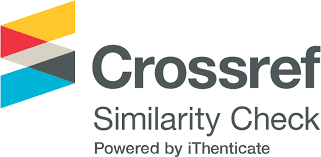The Effects of E-Governance on Customer Satisfaction: The Case of Addis Ababa Water and Sewerage Authority
DOI:
https://doi.org/10.70301/f15g7474Keywords:
E-governance, Service delivery, Customer, Customer satisfaction, SERVPERF, AAWSSAAbstract
The emergence of electronic governance has been one of the important developments in public administration in the past decades which helped governments as a means of reducing costs, improving service provision for citizens and increasing effectiveness and efficiency. The purpose of this study is to assess the effects of e-governance on customers’ satisfaction. The target population comprises customers from the Addis Ababa Water Supply and Sewerage Authority (AAWSSA in its Arada branch. Both quantitative and qualitative data were collected to analyze the effects of e-governance on a sample of 330 users of water billing. Data were analyzed using the five attributes of SERVPERF model. The study revealed that e-governance has brought positive effect on service delivery by enhancing the customers’ perception on the service delivery and their satisfaction even though the satisfaction level is moderate. The satisfaction level is moderate because the office encountered challenges such as customer e-service illiteracy of the customers, poor internet infrastructure and dependence on external e-service plat form suppliers.
Additional Files
Published
Issue
Section
License

This work is licensed under a Creative Commons Attribution 4.0 International License.
Publication Agreement
This Publication Agreement ("Agreement") is made between the author(s) ("Author") and the SBS Journal of Applied Business Research ("Journal"). By submitting a manuscript for publication, the Author agrees to the following terms:
1. Grant of License
The Author retains full copyright ownership of the submitted and published work. The Author grants the Journal a non-exclusive license to publish, distribute, and archive the article in any format or medium, including but not limited to online and print versions.
2. Open Access and Licensing
All articles published in the Journal are fully open access under the Creative Commons Attribution 4.0 International License (CC BY 4.0). This means that:
• The work can be freely used, shared, and adapted by anyone, provided that proper attribution is given to the original Author.
• The full license terms can be found at https://creativecommons.org/licenses/by/4.0/.
• No additional restrictions are placed on the use of published articles.
3. Author Responsibilities and Warranties
The Author guarantees that:
• The submitted work is original and has not been published or submitted for publication elsewhere.
• The work does not infringe on any third-party rights, including copyright, trademark, or proprietary rights.
• All necessary permissions for copyrighted materials used in the manuscript (e.g., figures, tables) have been obtained.
• The manuscript complies with ethical research standards and does not contain any form of plagiarism or falsified data.
4. Editorial and Publication Process
• The Journal reserves the right to perform editorial revisions for clarity, formatting, and consistency while maintaining the integrity of the Author’s work.
• The publication of an article is subject to peer review, and acceptance is not guaranteed upon submission.
5. Retraction and Corrections
• The Journal follows COPE (Committee on Publication Ethics) guidelines and reserves the right to retract, correct, or withdraw an article in cases of misconduct, errors, or ethical concerns.
6. Governing Law
This Agreement is governed by the laws of Switzerland. Any disputes arising under this Agreement shall be resolved in the courts of Zurich, Switzerland.
7. Agreement Acceptance
By submitting a manuscript, the Author acknowledges and agrees to the terms outlined in this Agreement.
Editor-In-Chief
Prof. Dr. Milos Petkovic







